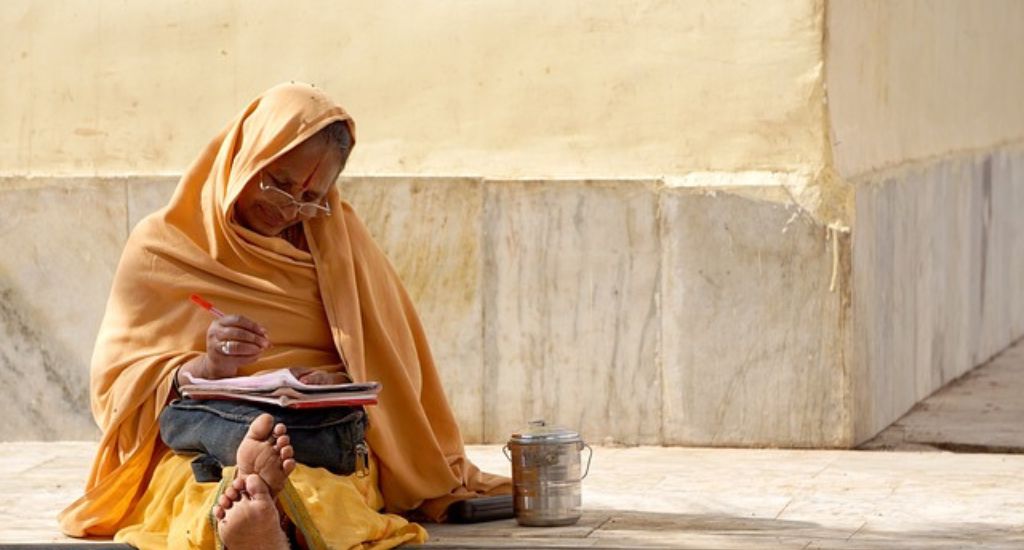
Rural startups that won over the sharks
From handmade sarees to pickles and agricultural robots, Shark Tank India Season 3 showcased several startups that empowered rural communities.

From handmade sarees to pickles and agricultural robots, Shark Tank India Season 3 showcased several startups that empowered rural communities.
In 2024, Season 3 of Shark Tank India provided a platform for several innovative startups that were rooted in rural areas or focused on empowering village communities. Here are some notable pitches that stood out for their ingenuity, business acumen and growth trajectory.
Deeva: An online saree store that empowers makers
Founder Ankush Barjata, who comes from village Bangana in Himachal Pradesh, could not make the cut for Season 2 but that didn’t deter him. He found his spot in Season 3, winning over the investors with his startup Deeva, an online saree store. The store connects customers directly with manufacturers, thus bringing down prices to nearly 50 percent of market rates.

Taking his family legacy forward, Ankush offers over 50 handloom and 400 machine-made saree varieties. He successfully raised Rs 75 lakh for six percent equity with three sharks on ‘Shark Tank India 3’.
FarmDidi: A pickle revolution from the heart of India
The startup brings rural women together under the FarmDidi umbrella, showcasing their natural, preservative-free healthy pickles and chutneys. Founders Anukrit Johari, Manjari Sharma and Asmita Ghodeshwar have helped over 1,500 women earn between Rs 5,000 to Rs 10,000 monthly, empowering them through training in sustainable farming practices.
The labels also carry the names of the respective women manufacturers. FarmDidi has partnered with the Maharashtra government to support self-help groups in villages. They secured Rs 1 crore for 10 percent equity from sharks Peyush Bansal and Vineeta Singh.
P-TAL: Handcrafted heritage for culinary perfection
Committed to preserving the craft of traditional Thathera utensils, P-TAL was founded in 2019 by Aditya Aggarwal, Kirti Goyal, and Gaurav Garg when they were still studying at Shri Ram College of Commerce, New Delhi.
The brand specialises in handcrafted brass, copper, and bronze utensils which are also known for their nutritional benefits. The initiative has boosted the income of over 55 Thathera families, with their sales going from Rs 21 lakh to Rs 3.98 crore last year. Their impressive growth story got them an all-shark deal on Shark Tank India Season 3.
RodBez: A ride-share app that’s simple and effective
A taxi booking platform from Bihar, founded by Dilkhush Kumar and Siddharth Shankar Jha, RodBez offers one-way taxis and a convenient option to book rides in small towns and villages.

Dilkhush, known as Bihar’s “startup king”, hails from the state’s Bangaon village. After completing grade 12, he did several odd jobs to make a living, including pulling rickshaws in Delhi and selling vegetables in Patna.
He taught himself coding and watched video tutorials to create the ride-share app. The startup was successful in getting funding on Shark Tank India Season 3.
XMachines: Agricultural robots to empower farmers
Hyderabad-based entrepreneur Trivikram founded XMachines in 2017 to support Indian farmers through his AI-powered agricultural robots.
Through its ‘robotic micro tractors’ whose cool designs are reminiscent of Tesla’s Cybertrucks, the company aims to promote affordable sustainable agricultural practices. The design was considered “intelligent” by the sharks and he secured a deal of Rs 72 lakhs for four percent equity from Ritesh Agarwal and Namita Thapar jointly.
Canvaloop Fibre: Turning agri-waste into beautiful yarn
Set up by Shreyans Kokra, Dhruv Gupta, and Nandini Kokra, Canvaloop Fibre takes agricultural waste and transforms it into high-quality, eco-friendly fibres and yarns for fashion, apparel, and home textiles.

Their sustainable venture uses low-impact proprietary technology and provides an additional income stream for rural farming communities by utilising agricultural byproducts. During the pitch, they displayed a pair of Levi’s jeans that was created using 20 percent Canvaloop fibre. It secured an all-shark deal of Rs two crores for four percent equity.
The future of India is definitely alive and thriving, thanks to these entrepreneurs who have their hearts in the right place.
The lead image on top shows a confident and independent rural woman. Several entrepreneurship ideas are empowering such women to supplement their income. (Photo courtesy of Pixabay)